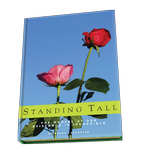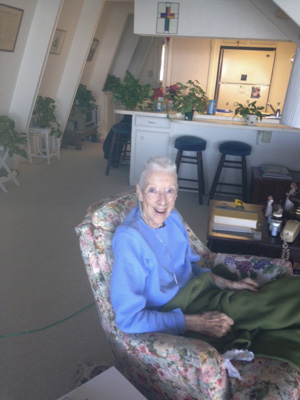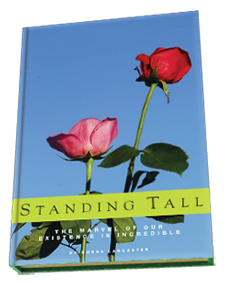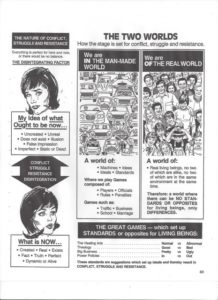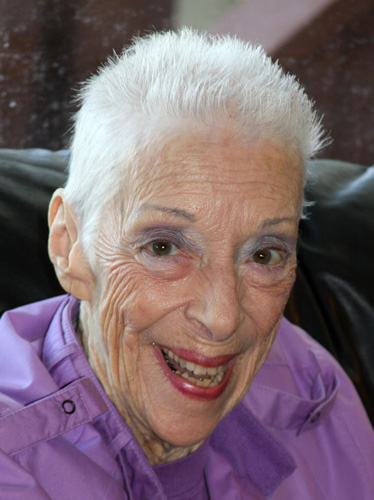What’s Going On?
31 September 2005
ALONG THE WAY:
All we can do is report what we’re sensing. That is being obedient to our nature.
THIS MONTH’S THOUGHT:
We won’t worry about what people think of us if we realize how seldom they do.
SCIENCE OF MAN:
Lesson Eleven (Continued from last month)
When you were a little child you probably heard the story that there was a pot of gold at the foot of the rainbow. And if you ever lived in certain areas, possibly, the foot of the rainbow looked like it was just a few feet away. And you could rush out and get the pot of gold. Wouldn’t that be wonderful? But if you ever tried to chase a rainbow, you find it is always a little farther on the next hill. When you get to the next hill, it’s on the next one, and very shortly, the whole thing disappears. And, if one should ever see that all the ideas of the self, of what ought to be, are just as illusionary as that rainbow, one would cease to be tempted to be identified with the ideas of the self, that what ought to be is good, and that ‘what is’ is bad. That it should be changed so that it would be good.
Now, the attempt to change a fact is the most impossible thing man knows. But, it is very possible to re-evaluate the value of that fact. And one, which did see the fact as being bad and wrong and everything concerned with it, can suddenly begin to see that it is good. It is a challenge. It gives me an opportunity to evolve, to grow, to be more conscious, and to arise in conscious awareness, and that to be more obedient to one’s nature, to report ‘what is’ and it’s value. You see, X doesn’t operate upon anything just because you say it is, you also must see its value. Then you are reporting the Truth to X. Now if one reports that something is, but that it’s bad, X, of course, doesn’t operate upon it. And then, one reports that what would be valuable would be to attempt to change ‘what is’ into what it ought to be. And that, of course, is the struggle, and conflict, and resistance that most everyone is in.
So, in our sheet of paper we will see ‘what is’ and then we’ll see, on the other side, what the ideal, what would be good. And as we observe these written out where we can look at them and see them, you’ll find the re-evaluation begins to come about very easily. In fact, very apt one is to begin to see the humor in the whole situation. And begin to laugh at all the ideals, all the what ought to be’s, all the struggle that has been gone through the years, trying to change ‘what is’ into something that “I” could say that is good and valuable. “I” don’t see the challenge as being good. The self is totally upset with ‘what is’.
Now most everyone sees what is true, or a fact that a given event is taking place. But let’s observe that the self immediately begins to evaluate that event, and very frequently says it is bad. It is not good. And then becomes the struggle to change that ‘what is’ into what ought to be. We can also see that it is in a constant state of expectation that it will be what it calls good. And when ‘what is’ comes along to give one an opportunity to evolve, immediately there is the self-judging it as bad. I will observe this and we will write and carefully observe, all through the week, our ‘what is’ is so frequently seen as something bad. And how seldom it is seen as valuable or good. And only as a man sees what’s true and what’s good, does he see the Truth. And they’re always in agreement. There is never a conflict in Truth. ‘What is’ does have a value when one is awake and sees it.
A STORY:
What is my most valuable asset? What is at the top of the list?
My inner state of being tops the list. Along with this I include the Teaching Material because without it I would never have known this priceless information. Without the Teaching Material, I would still be putting top value on regaining the non-disturbed state.
Along with this tremendous value of the inner state, comes the responsibility of maintaining it in a state of vital interest. We are all familiar with the tone scale. With practice and attention, we can know exactly where we are. The conditioned states—apathy, fear, held resentment, anger and boredom—are hypnotized states of being that control us mechanically. They have no value. They can only lead to death of the living being. Contentment is pleasant, but quickly slides into boredom. Vital interest is a consciously chosen state that I find desirable and to my advantage to maintain. I find that most of the time I don’t just fall into vital interest automatically. It is not easy to act vitally interested when apathy is in charge. It takes some attention, effort and energy. The Work says we act ourselves into right feeling. If I act or play the role of being vitally interested, within thirty minutes I will FEEL vitally interested. The conflict, struggle and resistance are gone. There is no stress. The body functions harmoniously. This state is the springboard for higher states of consciousness that I cannot determine, but just happen.
All it takes is to see the value of this inner state, then apply effort and attention. What keeps me from being in vital interest right now?
I do that which I put value on.
QUESTION AND ANSWERS:
(from Dr. Bob’s writing 1/18/63)
What is the difference between responsibility and duty? And obligation?
Responsibility is something you have FOR YOURSELF whether you like it or not. You took it on when you drew your first breath and cannot get out of it.
Duty is something you can take on and you can put down. One’s duties never bother us if we realize this. When you gave birth to children you took on the duty to see after their welfare. You could put down the duty by having them adopted out, but you probably would not. Most of us do not want to put down our duties. When you decide to take charge of how happy your children are or making them “happier”, you take on false responsibilities. This is interference. You may see to their welfare, but not their happiness. You cannot think for them
Obligation is another word for duty. By your own sense of well-being you take up duties. But you have no responsibility for anyone else and when you think you do you are confused. If I blame you for my unhappiness, I am denying my responsibility. If I try to be responsibility for your happiness, I am taking up a duty which does not belong to me.
What is truth?
Truth is WHAT IS, not what was or what will be. You cannot tell a person what is true. You can only tell or show them their illusions. They discover what is true for themselves. Truth is what is left after the lie has been seen. It is what is left after all illusions are gone.
What is personal integration?
A person who is not struggling toward an illusion. We are not interested in integration. We are interested in the process of disintegration. When we see disintegration, we can see what integration is. It is a spontaneous awareness all the time. To see ”what is” eliminates what is not. After we are rid of our illusions, what is left is the mastery of self.
What is freedom to?
“I HAVE to do this. I HAVE to do that.” The illusion of HAVE TO anything is a terrible limitation. You do not HAVE TO. You are FREE TO. To be free to do anything you must realize that you ARE free. We torment ourselves because we think we HAVE TO. We are created to be free. We resent the idea that we have to do anything, but we try anyway because this is the way of the world and we do not want to be different. When we HAVE TO we block the creative flow of life. We are free to have any experience which is presented to us. If we try to be free FROM anything we are trying to alter ourselves. Start with freedom and you will end with freedom. “I am free to choose what is to my advantage at this moment. I am perfectly free to have a conflict. I am free to not want at the same time that I want. If I am free to be conditioned, then I am no longer conditioned. The Master is the man without illusion who can say ‘I AM FREE TO DO THIS
What is Blame?
The basic attitude of the human mind that has not studied self is that of blaming. This blaming may go under the guise of looking for cause or for reason for something. The mind is continually engaged in a generalized blaming and frequently in specific blaming. This blaming originates from thinking in opposites. Thinking in opposites and blaming are the two sides of the same coin. One cannot think in opposites and not blame. Nor can one blame and not think in opposites. Blaming is judging. Thinking in opposites is judging. With the discovery that nothing nor anybody is to blame, there is a renewing of the mind. This renewing of the mind is integration. Integration is a change in the basic attitude from that of blaming to that of responsibility. “I” try to make you responsible for my feelings. You cannot choose my response to your actions any more than you can eat for me. Would you resent me trying to make you responsible for my state of nutrition or feeling? What is the state of the person who feels that this and that is to blame? Bondage? What is the state of the person who sees that “I am doing this?” Freedom. (The coffee didn’t keep me awake. I drank the coffee and kept myself awake, etc .etc.) Is there any conflict in the latter? When there is no conflict in the mind, would you say that person was integrated?
**********
After a real crusher of a landing at the Phoenix airport, the attendant came on with: “Ladies and Gentlemen, please remain in your seats until Capt. Crash and the Crew have brought the aircraft to a screeching halt against the gate. And once the tire smoke has cleared and the warning bells are silenced, we’ll open the door and you can pick your way through the wreckage to the terminal.”
Special Bonus:
The Two Worlds
(from Headlines)
